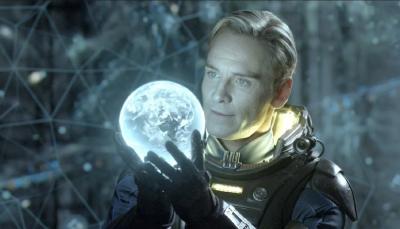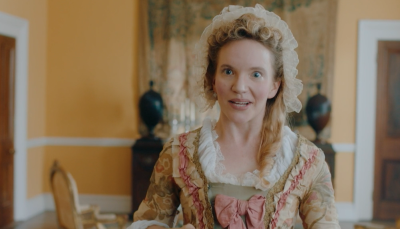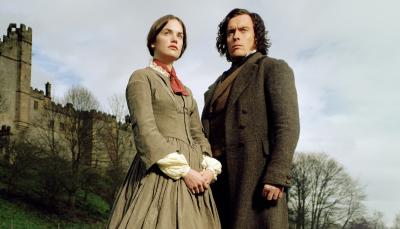Classics Revisited: 'Jane Eyre' is the Best Version of a Frustrating Tale
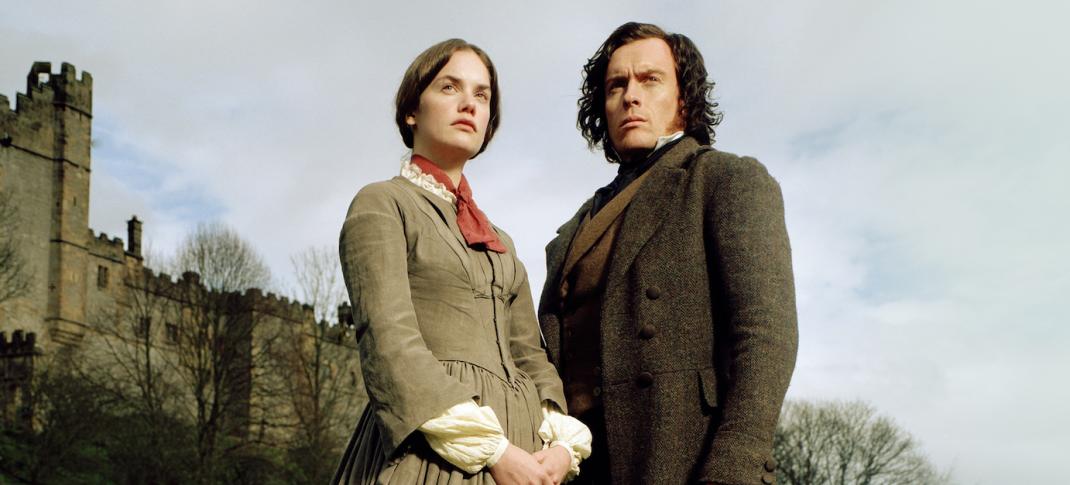
As part of our new "Classics Revisited" series, we're taking a look back at some of our favorite series and movies from days gone by. First up: The 2006 BBC adaptation of Jane Eyre, a four-part series whose lush atmosphere and incredible cast may well make you forget how uncomfortable much of this story really is.
Charlotte Bronte's novel is groundbreaking for many reasons, not the least of which being that it actually gives readers a relatable, self-actualized heroine to root for and makes an ahead-of-its-time argument for female liberation and equality. Yet it also centers a love story that is deeply problematic and uncomfortably toxic, making a hero of a man who is, in many ways a monster. (Justice for Bertha Rochester, is what I'm saying.) I suspect that it is the tension in this dichotomy - between the seemingly modern heroine we want to believe a mid-nineteenth-century female author could have produced, and the restrictive romance the character ultimately submits to - that has kept us debating the merits of this novel for so many years.
As I said during our podcast conversation on this topic, I suspect readers tend to fall into one of two categories. You're either a Charlotte Bronte person, which means you probably love Jane Eyre for all the things it gets right about its heroine and the agency its story grants her. Or you're an Emily Bronte person, which means you prefer the overly dramatic world of Wuthering Heights, including Heathcliff and Cathy's aggressively epic (and, admittedly, also often toxic) romance.
For what it's worth, I am 100% an Emily Bronte person, and the 1992 film version where Ralph Fiennes plays Heathcliff was extremely formative for me. And as a result, I've really been a huge fan of any version of Jane Eyre. But I can freely admit that the 2006 BBC adaptation, which stars the near-flawless Ruth Wilson as Jane and Toby Stephens as Rochester, is truly the closest I've ever come to "getting" this story and its appeal.
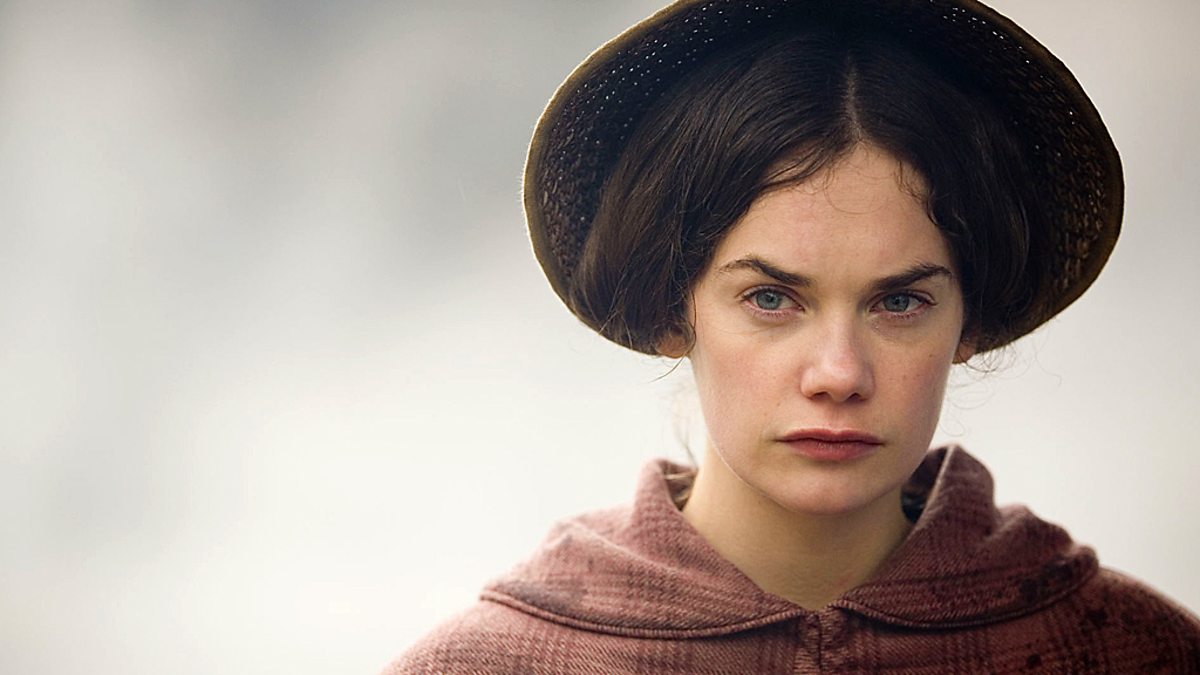
This series' really leans into the David Copperfield-esque origin story of its female lead, following Jane from her earliest days with her spiteful aunt to the abusive girls' school at which she will at least get an education - and the all-important advice to advertise herself. One of the highlights of this particular adaptation is its length, which really allows the story and its settling to breathe. From the gorgeous cinematography and the attention to detail in its settings (Thornfield looks exactly right) to the simple fact that the series has ample time to devote to the evolution of Jane and Rochester's relationship, absolutely nothing about this story feels rushed.
Jane and Rochester don't even really admit their feelings for one another have a romantic bent until somewhere around the series' third hour, which means that no matter how you may feel about the fact of their relationship - and I am firmly on Team Toxic - you can still see precisely how and why the two are drawn to one another. They feel like real friends long before the story ever hints that they might become more than that, which lends proceedings a much more deliberate and carefully considered air.
Jane doesn't care for Rochester because he's her only option, but rather for his own sake. And that makes a surprising amount of difference.
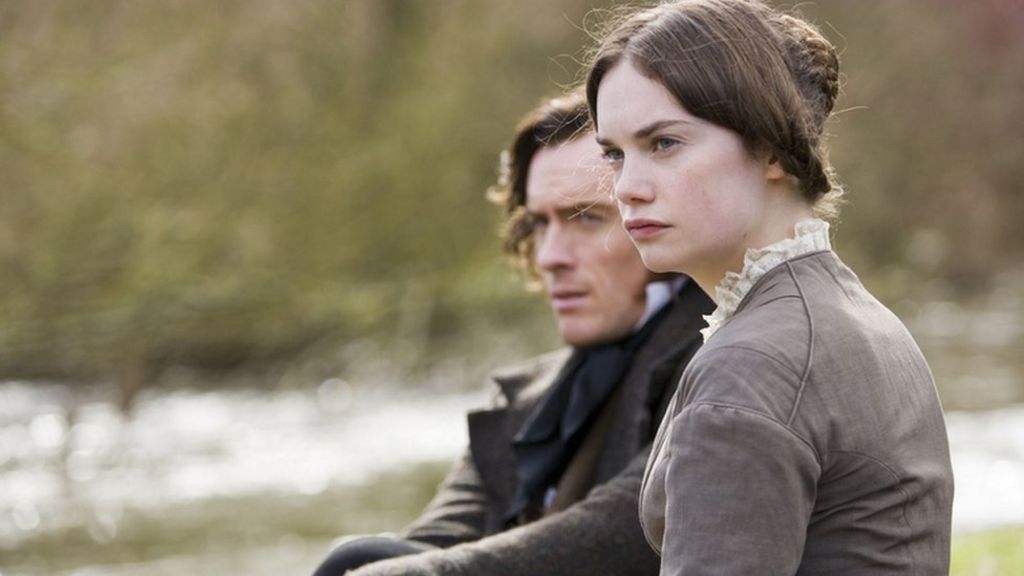
Wilson and Stephens have lovely chemistry with one another, particularly and especially during the angsty first half of the story. Strangely, for me, the two are less appealing once they're finally allowed to kiss one another, and I'm not sure if that's because I just personally am a sucker for stories that involve lots of pining or because something about this specific tale that becomes less interesting once it's not about all the longing.
But it's ultimately Wilson's powerhouse performance that carries this adaptation. It seems kind of wild to think about now when we've all seen her in things like Luther and Mrs. Wilson and The Affair and His Dark Materials, but Wilson was virtually unknown when she took on this part. She's not as plain as Bronte's novel insists Jane is, but there's something about the sly strength that inhabits her take on the character that makes you think the reason people disliked Jane wasn't so much that she was unattractive but that she's unconventional, both in terms of her intelligence and her emotional acuity.
To put it more bluntly: Wilson's performance is really one of the few times that I, as a Wuthering Heights person, come close to understanding what people see in this character, and can see how Jane Eyre might actually be the heroine of worth that so many people tell me she is.
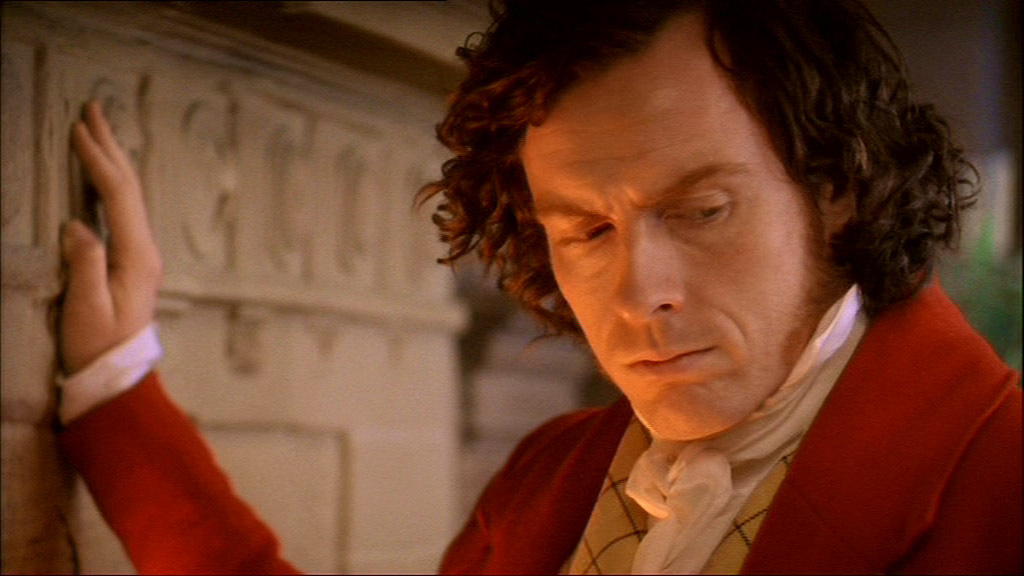
And, to be fair, Stephens is no slouch, either. His Rochester is more cynical and bitter than emo and broody, and it's a take on the character that really works for him, even if it's at least partially based on deep-seated resentment toward a woman that does not in any way deserve it.
I'm more familiar with Stephens' work as Captain Flint on the Starz pirate drama Black Sails, but he's very good here as a Rochester that seems to not only genuinely like Jane, but who is honestly surprised that she might like him back. (I mean, there's not a lot here that indicates he feels particularly bad about locking his wife in an attic and lying about her existence to the woman he attempts to entrap into bigamy, but I suppose there's only so much he can do given what, y'know, the actual text is. SIGH.)
Through flashbacks, we see something of his initial relationship with Bertha, though the show sadly seems to want to simply frame her as promiscuous and crazy, rather than offer any new insight about who she is or how she might feel about her life of imprisonment and/or the woman she must watch take her place from the shadows. No matter how great this novel and/or series may be in other respects, it is Bertha Rochester who is the stumbling block for me - both in terms of the way her character is treated and the utter absence of interiority she is granted. (And, in all honesty, I'm not sure how I'm meant to root for Jane to be with a man who would treat a woman this way, no matter how nice he may be to her.)
At the end of the day, however, this particular Jane Eyre is almost certainly the best adaptation of a problematic text - one that elevates the best parts of Bronte's story while doing its best to smooth over its rougher, more problematic bits. (I mean, how do you solve a problem like Rochester? You can't really, but this series tries its darnedest, and for that fact alone, it deserves to be remembered fondly .


